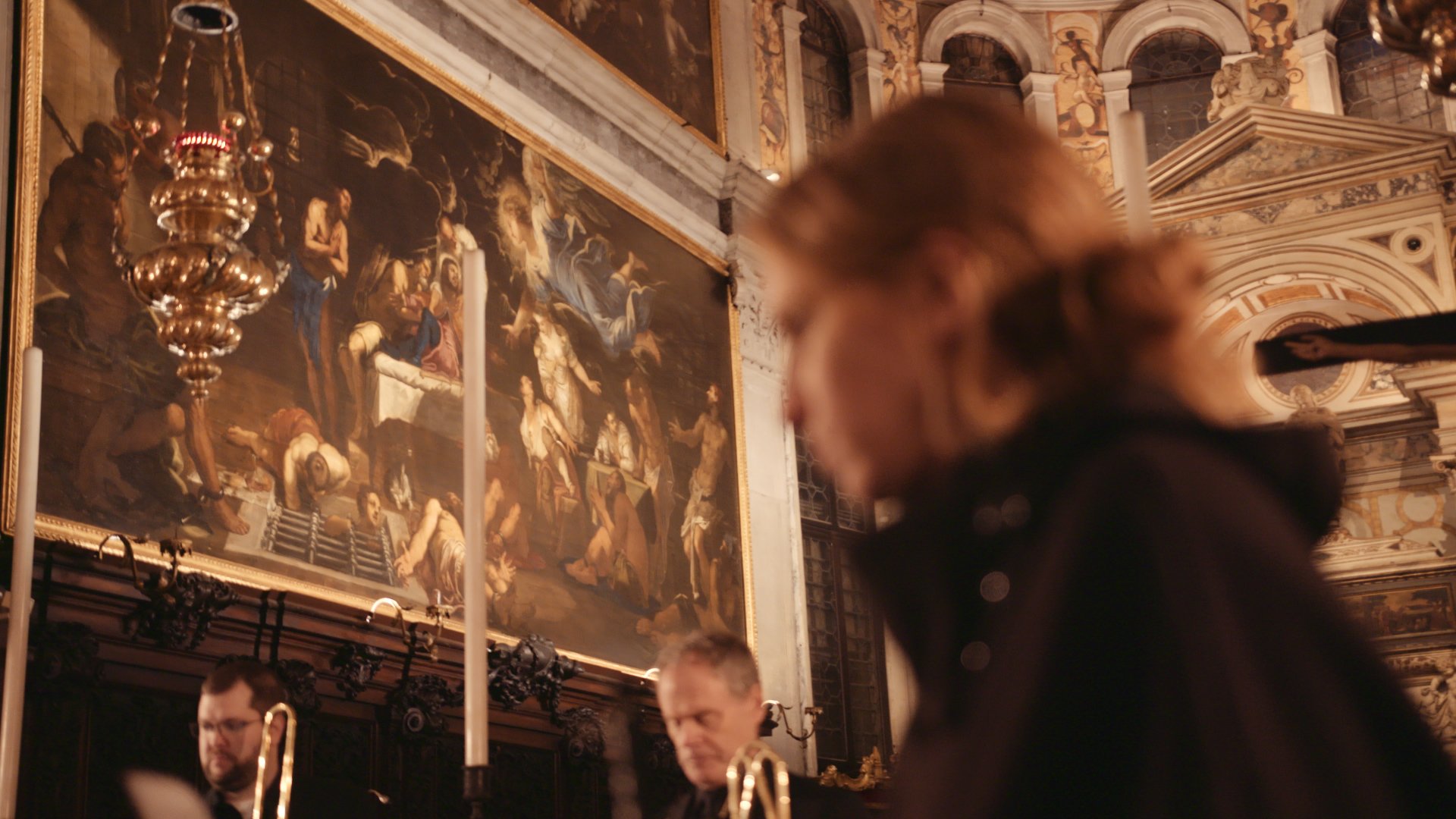Frequently Asked Questions
Here we share a few tidbits about our music and our work! If you have a question, please ask! We always love hearing from you.
-
Jolle Greenleaf, artistic director
Our ensemble was formed in 2003 as The Tiffany Consort, named for the Louis Comfort Tiffany windows at St. Michael’s Episcopal Church, where we offered our first performances. I was a founding member of this ensemble, which underwent a big change in structure and leadership during the summer of 2009.
When I was named artistic director, I launched a new series of project-based concerts focused primarily on early music. This allowed for a wide range of programs focused on repertoire for voices and instruments. During this transition, the name Tenet came to be, with the words Vocal Artists being added later. I love the circular, fluid nature of palindromes and the word Tenet means a belief. It also comes from Tenere, which means “to hold”. In essence, I was holding on to something I believe in.
-
James Reese, tenor
“Early music” usually refers to music written before the year 1800. Most “classical” music that is widely known and popular (think: Bugs Bunny) comes from the 19th century, during the Romantic period. In some instances, the music that Tenet performs is nearly 500 years older than that!
Tenet’s artists are all specialists in historical performance practice. This is a field of research that attempts to understand and recreate how music might have actually sounded when it was first written and performed. Of course, we don’t have sound recordings from hundres of years ago. But, by using historical documents, treatises, images, and other texts, we can deduce lots of information about how musicians played music. By applying these ideas to make best guesses, we can illuminate the music on the page to make history come alive.
-
Madeline Apple Healey, soprano
As a generally curious kid, I was always fascinated by the lives of historical people, but didn’t properly encounter early music until I joined a youth choir where we sang Renaissance polyphony. That conductor encouraged me to audition for a baroque orchestra who needed treble soloists for a concert of Praetorius — I couldn’t believe it when I got the gig! At rehearsal I met so many inspiring professionals who, unbeknownst to little Madeline, would later become colleagues. I left that project with a deep love of stylish and collaborative performance, told my parents I was going to music school, and just kept walking through doors. I’m not sure I dreamed of being a singer, but I’m delighted I found my way here.
-
Jacob Perry, tenor
The short answer: we watch each other breathe.
The long version is that chamber musicians practice a unique kind of ‘group think’. If you play team sports or occasionally throw a ball or frisbee around, you’re already using some of the same skills we do in order to sing and play together. Just as you might follow the arc of a ball in the sky, calculating the exact point at which it will land in your palm, TENET’s musicians closely observe the length and speed of each others’ breaths in order to calculate the ‘pulse’ of the music. It’s actually quite similar to following a conductor, but more collaborative and with more shared responsibility.
-
Andrew Padgett, bass-baritone
Lots of reasons! From a performer's point of view, churches are often an ideal performance space for early music because compared to many theaters and concert halls the acoustics are often "wetter" - meaning the sounds we make will reverberate and ring through the space for longer. That makes it easier for us to hear each other and coordinate across the space, and our sounds blend and knit together much easier in a wet acoustic. They're also usually a better fit in terms of size for an early music ensemble - when you have a concert with between 5 and 12 singers and instrumentalists, a church gives us the right amount of space to work in, and a greater sense of intimacy with our audience.
-
Elisa Sutherland, mezzo-soprano
I have shown up to early music concerts in all kinds of attire, from my new favorite jumpsuit with the awesome shoulder pads to cozy leggings and a hoodie. I love an excuse to dress up and look fancy, but I'm also sometimes coming from a long day of running errands and don't have time to change. We want you to come as you are! The musicians performing on stage probably won't notice what you're wearing (unless you're sporting a truly fabulous hat), but they will definitely notice your engaged expression and exuberant applause.
-
Jolle Greenleaf, soprano
Ooh! This is a great question. When Henry Wadsworth Longfellow (and I didn’t make that up) said that “music is the universal language of humankind”, he didn’t mean that all sung music is in the same language. Ha!
Let’s see… English (obviously), Italian, French, German, Latin are the primary languages for the music Tenet regularly performs. Sometimes Hebrew, Spanish, Dutch. Outside of Tenet, our singers have covered many more languages!
Some of us speak the languages we sing, but mostly we learn to pronounce the words and study translations to make sure we’re able to express the words and meaning clearly.




